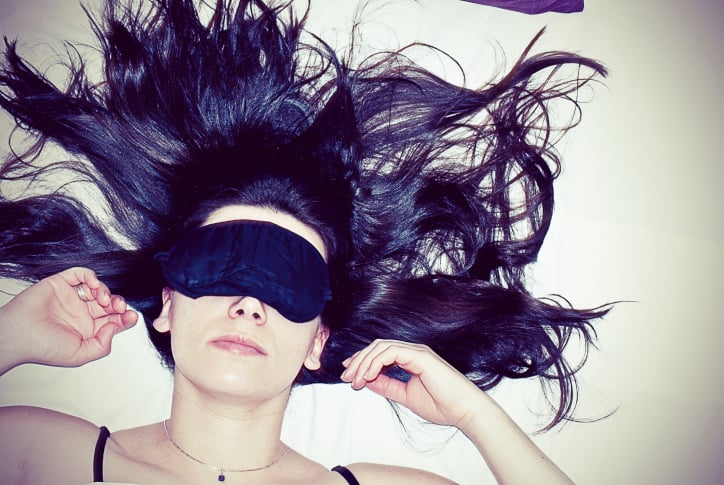
Image: Thinkstock.
I’ve always had difficulty falling asleep. My brain likes to use bed as an opportunity to digest every excruciating detail of my day, churn it over, and then tackle what’s on my to-do list for the next three days.
Frustratingly, my partner can fall into a deep, heavy (did I mention he snores?) slumber within minutes of his head hitting the pillow, while I lie awake for hours before my mind eventually shuts down and lets me sleep.
I’ve been trapped in this sleepless cycle for months now. I can’t sleep, eventually get three, maybe four hours, wake feeling exhausted then fuel my day with three cups of coffee to get through. Repeat: ad nauseum.
A three-day juice cleanse recently forced me to confront my caffeine addiction, but even after cutting back and stopping drinking it altogether, sleep still evades me.
Don’t get me wrong, I’m exhausted. But as a working mother-of-one, whose partner frequently travels, I really need my eight hours of sleep to function. Heck, I’d even take six solid hours.
I’ve tried everything; cups of Celestial Seasonings, exercising after dinner, relaxation tapes, mugs of warm milk, listening to soothing music, not eating too late, and shutting off the TV and laptop the recommended one hour before sleep. But there was one thing that cured me almost overnight.
Drumroll please… you ready? I bought an alarm clock. That’s it, an alarm clock.
I’ve had an aversion to alarm clocks all my life due to the incessant ticking, bright digital displays and fact that you can roll over and easily see that it’s only six hours and 17 minutes before you have to wake up. But I’ve made an exception because buying an alarm clock has allowed me to fix one thing that has been keeping me up at night. It has let me stop taking my iPhone to bed.
Go ahead and call me Captain Obvious, but I’ll bet that like me, a huge percentage of the overtired, burnt out population can’t sleep and then turn to their smartphones to kill time until daylight breaks. It’s a habit that’s locking them into the same sleepless cycle that has been haunting me for months.





























































































